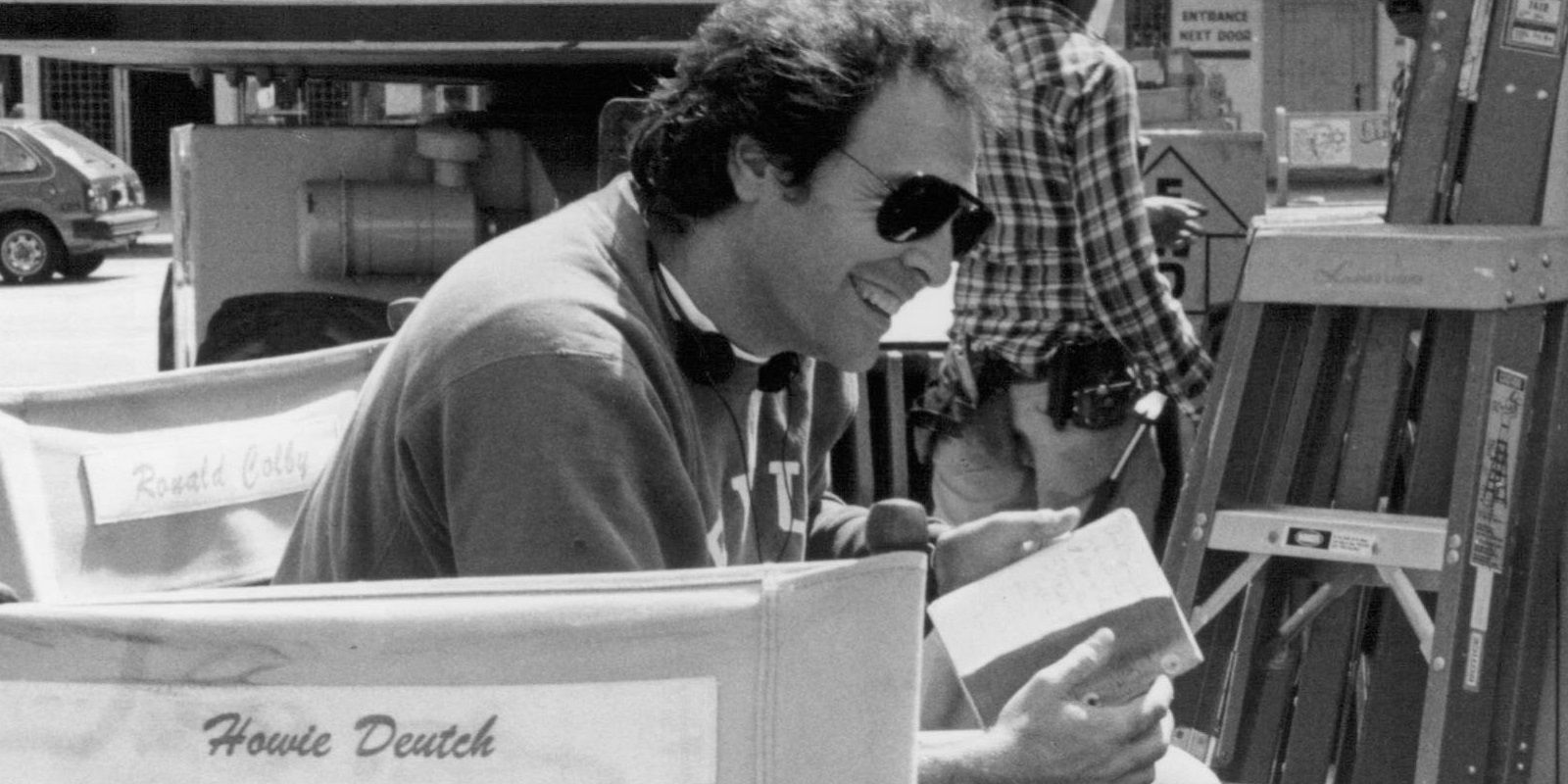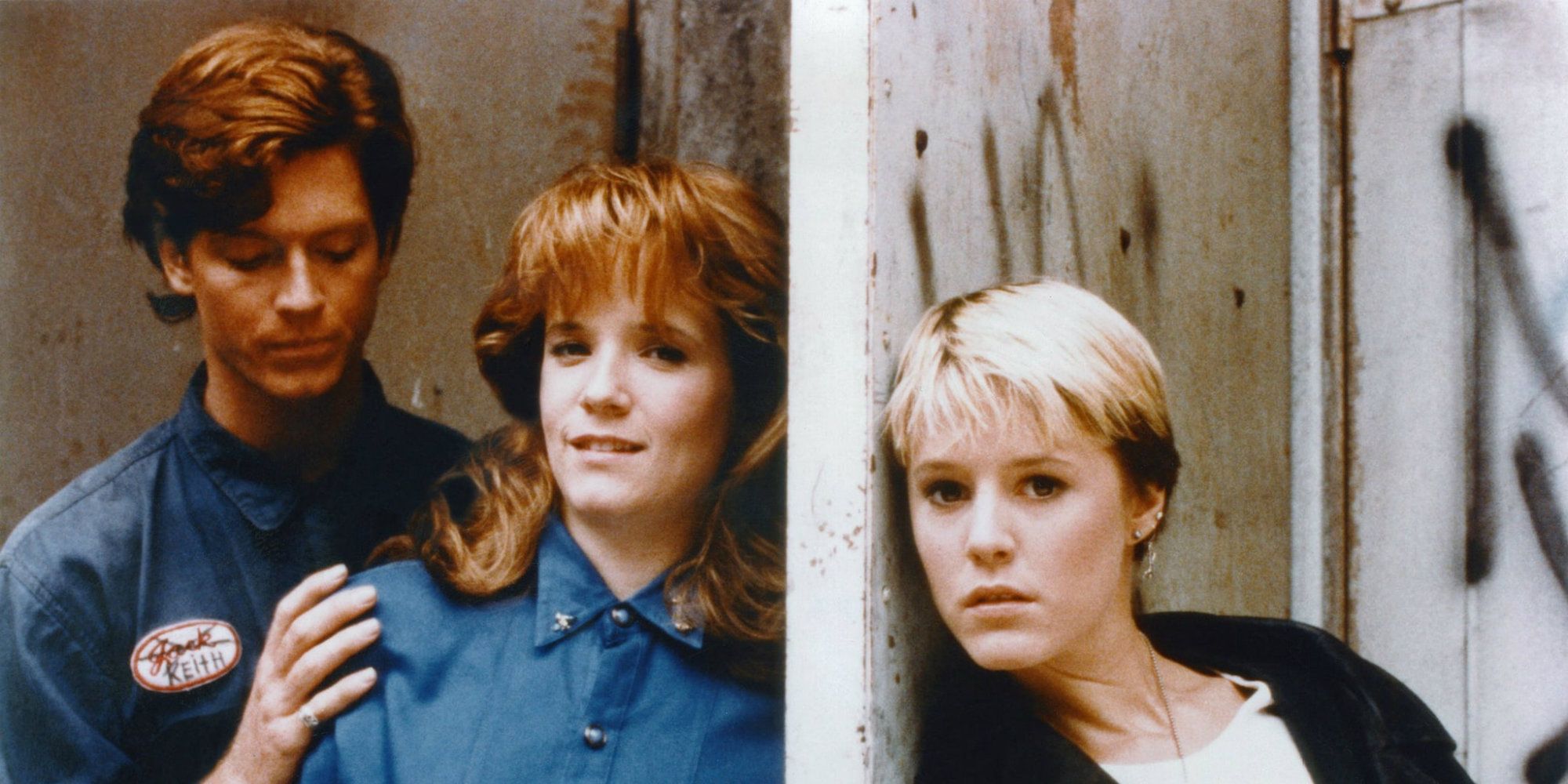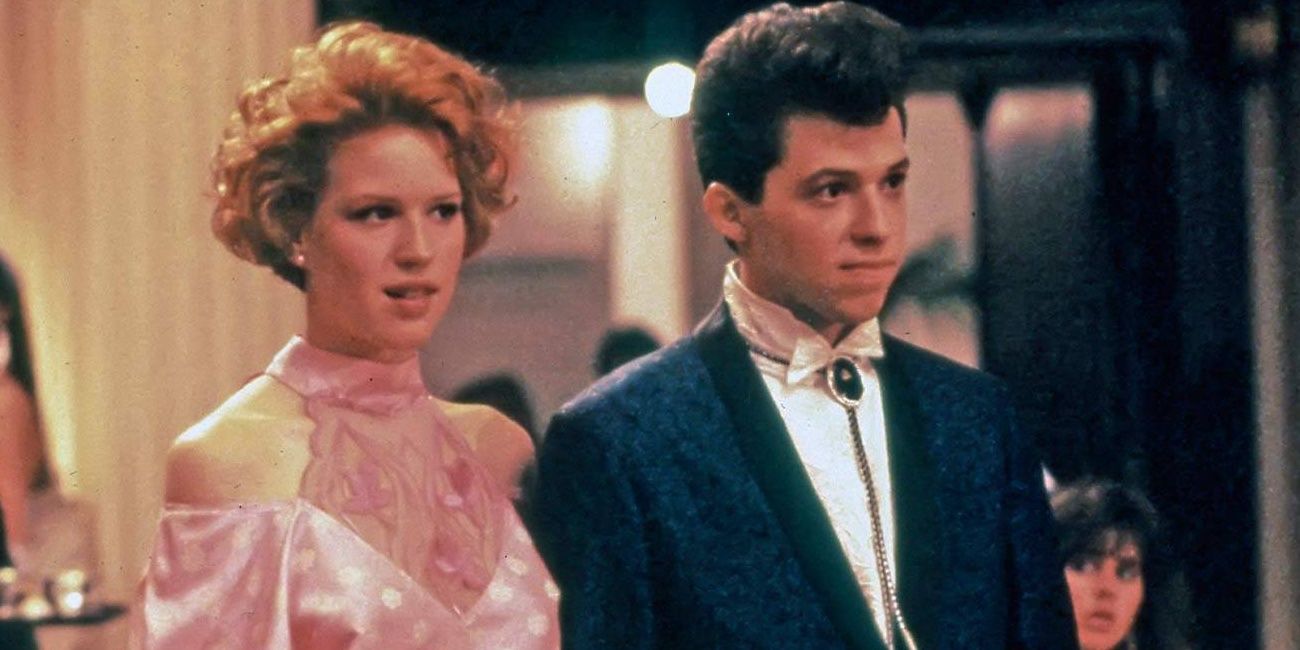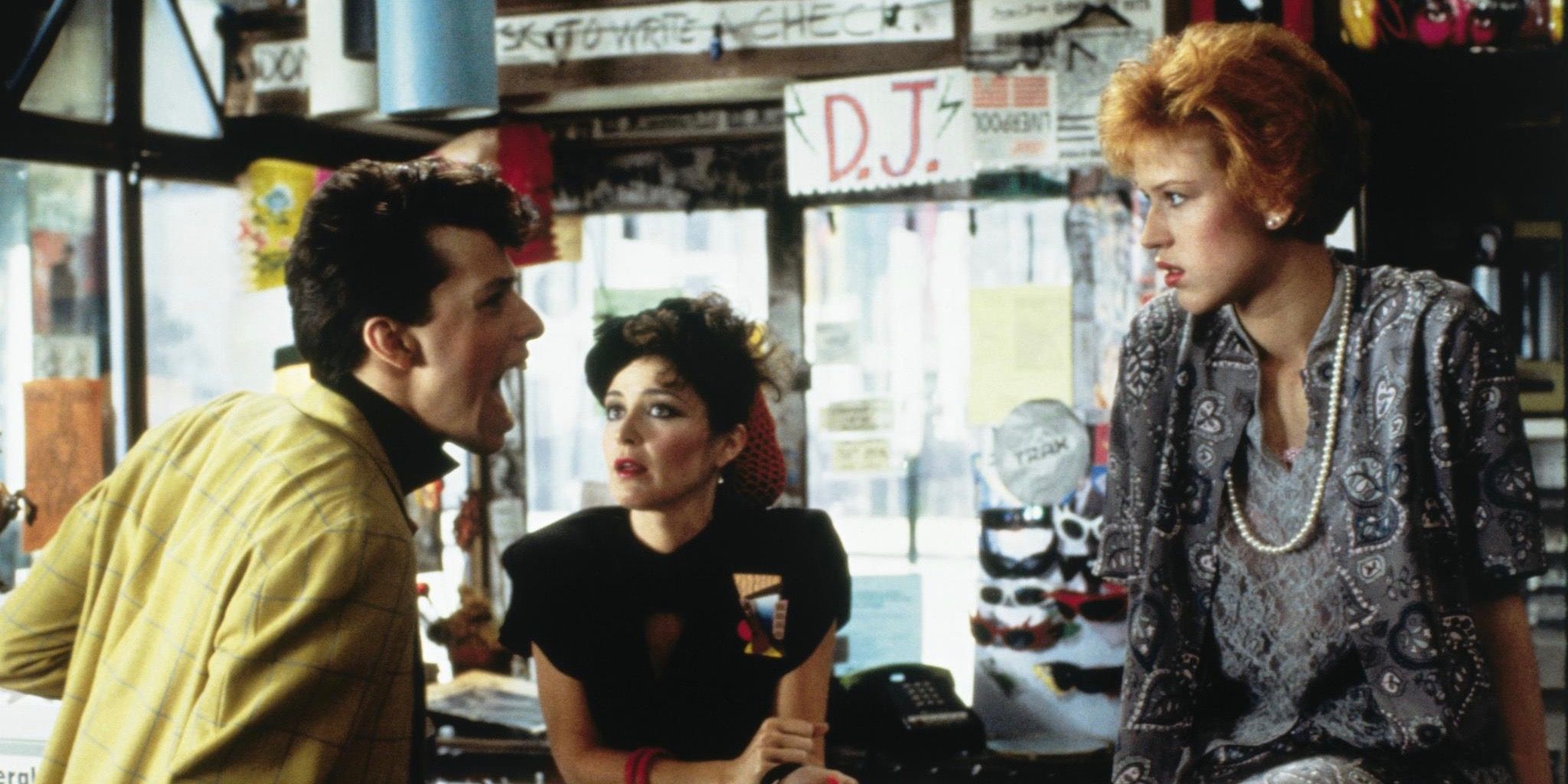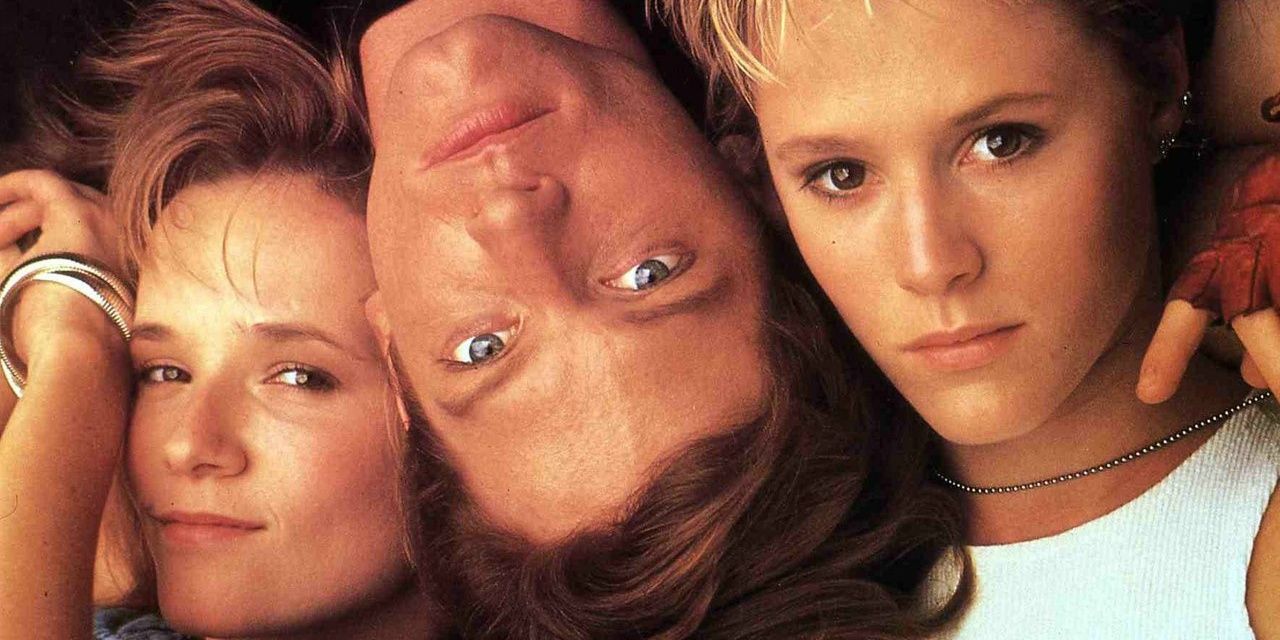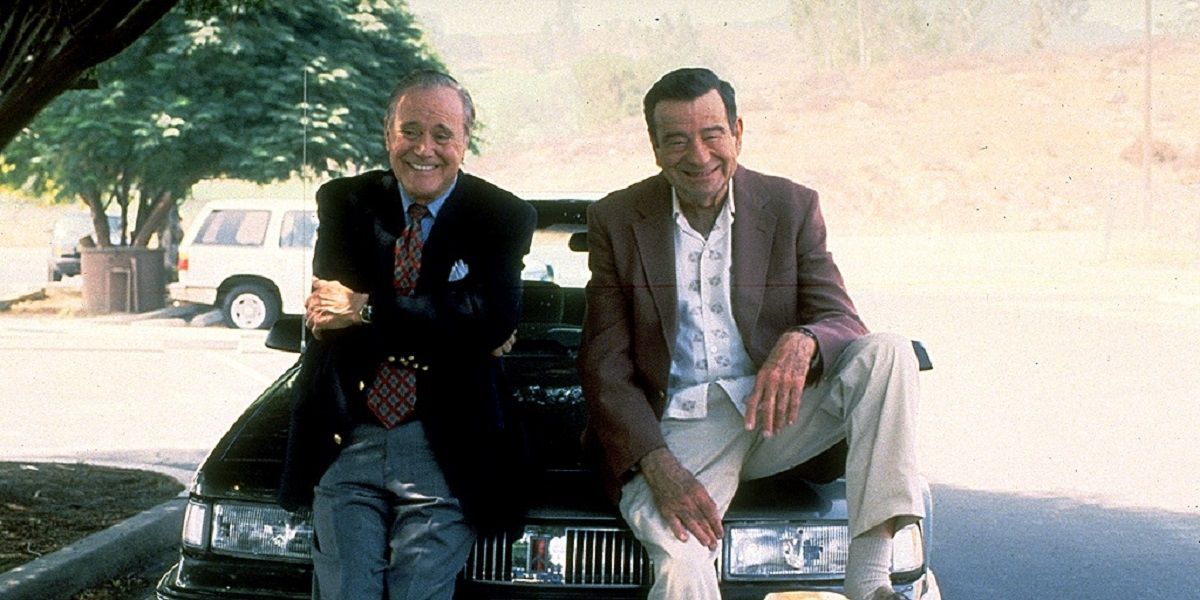Filmmaker Howard Deutch has spent decades carving his own unique path through Hollywood, directing film and television across a variety of genres. Back in 1986, though, he only had a handful of music video credits under his belt when he was offered his first film: Pretty in Pink, written by the king of 1980s teen cinema, John Hughes. The rest, as they say, is history, and Deutch would collaborate with Hughes again on a spiritual successor, Some Kind of Wonderful. Both films, as well as Ferris Bueller's Day Off, She's Having a Baby, and Planes, Trains, and Automobiles are included on the new John Hughes 5-Movie Collection Blu-ray set.
Pretty in Pink and Some Kind of Wonderful have a thematic connection, as both films feature working-class protagonists who fall for beautiful rich kids while oblivious to the affections of their longtime best friends. The films boast all-star casts, including Molly Ringwald, Eric Stoltz, Lea Thompson, James Spader, Elias Koteas, Jon Cryer, Harry Dean Stanton, and Annie Potts.
While promoting the release of the John Hughes 5-Movie Collection, which marks the Blu-ray debut of Some Kind of Wonderful, Howard Deutch spoke to Screen Rant about his work with John Hughes and his subsequent successes as a Hollywood director, a position he explains was never his life's ambition, but something that ended up happening while he was making other plans, as the John Lennon quote goes. He sets the record straight on whether or not Some Kind of Wonderful was penned as a direct response to the changes made to Pretty in Pink's ending, and reflects on what it was like to meet his future wife, Lea Thompson, on a movie set. Finally, he reflects on his work with Jack Lemmon and Walter Matthau on Grumpier Old Men and The Odd Couple II, and learning to deal with Matthau's reputation as a "Director Killer."
The John Hughes 5-Movie Collection is out now on Blu-ray.
I just had myself something of a Howard Deutch-athon, since I just watched Pretty in Pink and Some Kind of Wonderful back to back!
Howard Deutch: Oh my gosh, well, did you survive?
Yeah, of course! You know, I had never seen Some Kind of Wonderful before. For whatever reason, that one skipped past me until now. But I think I liked it even more than Pretty in Pink! It's just a beautiful movie, but you've heard all this before!
Howard Deutch: I can hear it forever!
Right off the bat, I imagine Some Kind of Wonderful has a particular personal value to you, since it's how you met your wife. If you don't mind my asking, was there a moment where you knew the two of you were going to really hit it off, like, did you become jealous during a kissing scene?
Howard Deutch: Yeah, the first time I met her! (Laughs)
I've never met Lea, but my best friend interviewed her and Zoey. You must be a proud papa, passing it along to the next generation, right?
Howard Deutch: Well, that's all Lea's doing. But yes, I'm very proud of both Zoey and my older daughter, Maddie.
Okay, let's go back. Pretty in Pink was your first movie. How did you get dragged into that, and how did you get someone like John Hughes, who, from what I understand was precious about the words of his scripts, to trust you to take his script and make it into your movie?
Howard Deutch: Well, the first lesson that I learned was not to make it into "my" movie, but to collaborate and interpret his script so that he always felt like it was "our" movie, not "my" movie. I think that's always important with any project. It's the voice of the writer, the voice of the director, and the voice of the actor that collide and create behavior. That's how you get something that feels personal and not manufactured. Not a "product." John was always open to that. He wasn't precious about his dialogue or his words as long as the sensibility and the tone and the notions of what he was trying to say were being protected. My job was always, from the beginning, to win John's trust and make him believe that I was going to protect that script, and I did and still do. That's where it all began. There's a saying, a Shakespearean thing, something about "The story's the thing to catch the conscience of the king," and it's true! As important as directing and photography and acting and everything else are, it's nothing without the story. That's that!
That's such a great answer. It's diplomatic, which is probably why I live alone. But that's neither here nor there right now.
Howard Deutch: (Laughs) That's funny.
Also, happy to invoke The Conscience of the King, my favorite Star Trek episode, but that's a whole other thing.
Howard Deutch: My wife is now directing Star Trek, so I'll mention it to her!
Oh man, that's so cool, I didn't know that! Okay, okay, the Hollywood legend is that Some Kind of Wonderful started out as a reaction to the changed ending of Pretty in Pink. Would you say that's an oversimplification, or did it really go down like that, with John seeing the new ending, being dissatisfied, and running to his typewriter going, "I'll show them!"
Howard Deutch: No, he had actually written the script prior to me finishing Pretty in Pink. But, it is true that the ending of Some Kind of Wonderful is more in the spirit with what the original ending of Pretty in Pink was, where true love endures. So it isn't a surprise ending. There's a triangle, and I don't think you know until the end exactly where it's going to end up, but yeah, I think it's more in the spirit of the original ending.
For both movies, any movie with characters this real, you don't want anybody to "lose," so no matter who they end up with, some portion of the audience will be upset.
Howard Deutch: Yes, but there are lessons learned. Lea's character learns a lesson to stand on her own and find courage to find herself. That's a better bath for her to follow at the end of Some Kind of Wonderful. And Jon Cryer sacrificing, making that ultimate sacrifice to let Molly go, and he's rewarded with that little coquette at the end! So I feel like nobody really loses in both of those movies.
Sure. Maybe I just lean towards the scandalous, but I wish Duckie had ended up with Annie Potts.
Howard Deutch: (Laughs) So does Annie!
Nice. Let's go way back, before Pretty in Pink. You got your start in the golden age of music videos. The early days of MTV. Billy Idol is one of my all-time favorite rock-and-rollers. Maybe I romanticize, but what was it like working in an atmosphere, doing a video in an era where the rules were being broken as they were being written?
Howard Deutch: Really, that was it. There were no rules. It was, for me, terrifying. I didn't really know what I was doing at all. I was lucky enough to get the break. I didn't even look for the break. It started with a movie trailer, a music video for a movie called Rumble Fish. They asked me to direct the video, and I said, "I'm not a director," but they said, "Ah, you can do it." Joel Silver, at the time a producer, reassured me, saying he'll be on set every day... But he never showed up. So I was learning to fly while the plane was being built. And I was lucky! I was terrified and didn't really know what would happen, but I ended up discovering that I enjoyed it, even though I didn't really understand how to do it. So I had the opportunity of learning whether or not I should do something based on how it went, and not based on whether it was successful or not. That's how it started.
Wow, that's such an amazing opportunity that you clearly proved you deserved.
Howard Deutch: And then I got offered other music videos. And on Sixteen Candles, they wanted a music video, so John and Ned Tanen, who was the head of Paramount, offered me that. That's how I really started to win John's confidence.
So, did you have a career trajectory in mind before you got pulled in that particular direction?
Howard Deutch: No. I didn't even have a career in mind. I was more like the guy... You know that John Lennon quote, "Life is what happens to you while you're making other plans."
Sure.
Howard Deutch: That's it. I was fortunate. Once all that happened with the music videos, I took a theater workshop to learn how to work with actors, in the Ensemble Studio Theatre. The final exam was to put on two one-act plays. Curt Dempster was the head of the theater. I did my play and everyone applauded. It was not a commercial theater. It was more of an independent film version of a theater. My play got a lot of applause, and he came up behind me at the end and said, "This isn't a hit factory." Which wasn't an insult to me! I realized, maybe I could do this. That gave me a little confidence.
That's great!
Howard Deutch: The thing is, after Pretty in Pink, I wanted to go back and do more theater. I idolized Mike Nichols and I thought, that's what I should do, not getting caught up in the rat trap of Hollywood on a hamster wheel. Hollywood is an endless game that you can't win. So theater was my plan, if you're asking if I ever had a plan. But it didn't work out, because I never got an offer to do anything in theater at that time, and I did get more movie offers. I didn't listen to my gut, and I ended up on the hamster wheel.
It's so interesting. Everything you just said leads me to one of my favorite movies. I love The Odd Couple II. When was that, 1997, 1996? I'm 30 years old, so I watched that on cable all the time when I was eight, nine, ten years old. That movie has its roots on the stage, but it's also got this crowd-pleasing hit-making vibe that I guess you don't expect from a movie with older leads. It's expected to be reflective and dramatic, but Odd Couple II is just like, "Hey man, we're on the road having a good time!"
Howard Deutch: Yeah, not a lot of people saw that movie, and it certainly didn't help my career, but it was a great honor to work with those guys again. It was amazing.
With Lemmon and Matthau, is that chemistry something you have to engineer and wring out of them, or do you just roll camera and call action?
Howard Deutch: Oh no, you just have to get out of the way. It's like Marlon Brando time. You don't interfere. They were so magical. There would be times in rehearsal where I would bet Walter to say the text because they would fire me. I said, "Walter, they're going to fire me. They bought a script, and you're not saying any of the lines!" He said, "Yeah, well, they're bad lines. I'm not going to say them."
(Laughs)
Howard Deutch: Then we started shooting and he knew all the lines. He would turn it on magically, and the two of them had that rare magic where you can't turn away. So it's a good question, they were my favorites, ever, to work with. And on Grumpier Old Men it was the same. They were amazing.
I'm imagining you getting into a fight with Walter Matthau on set and he'd be like, "What are you gonna do pal, get Jack Klugman?"
Howard Deutch: Walter made it known to me... I didn't know that he was known as "The Director Killer" before I took the job.
Woah, really?
Howard Deutch: Oh, he was known as that. You can't direct him. You have to negotiate with him. But we became so close. He was like my grandpa. He was one of the greatest men I've ever known, and one of the greatest actors. He taught me so much about so many different things and acting. But most important, improvisationally, he was able to sprinkle in that kind of stuff, but at the same time, use the text, without anybody, even the writer, knowing. Neil Simon is a stickler for every word he writes, but Walter was the only one he would let mess around with it, because he knew he would make it better.

